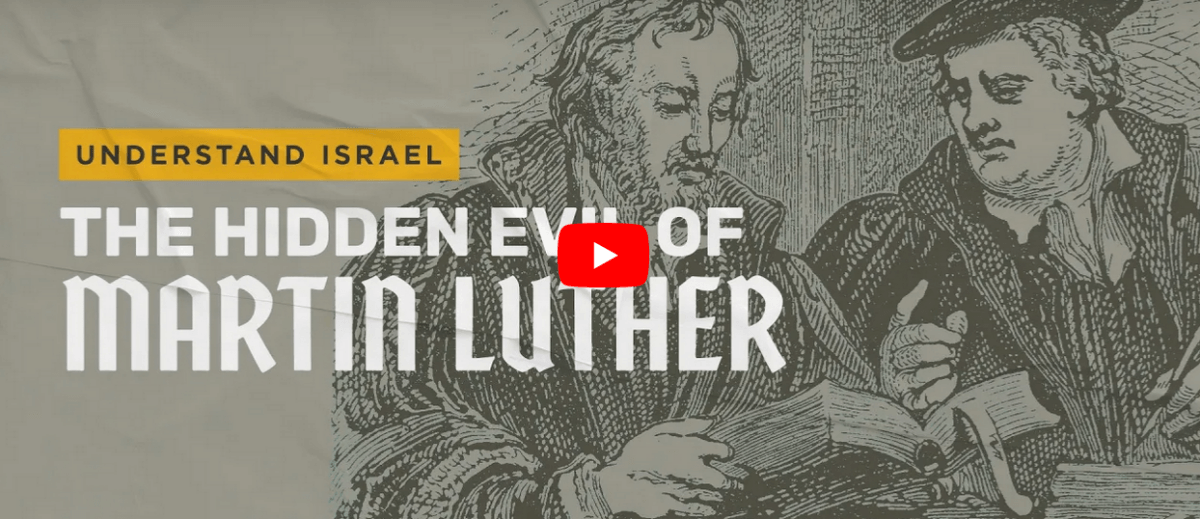Was Martin Luther Antisemitic?
Martin Luther, a towering figure in Christian history, is celebrated for launching the Protestant Reformation and championing theological reform from the Catholic Church. However, a lesser-known aspect of his life demands our attention. Was Martin Luther Antisemitic?
Introduction:
Martin Luther, a towering figure in Christian history, is celebrated for launching the Protestant Reformation and championing theological reform from the Catholic Church.
However, a lesser-known aspect of his life demands our attention. Was Martin Luther Antisemitic? Yes, Luther details his disturbing expressions of antisemitism in his very own book titled “The Jews and Their Lies,” where he calls for the destruction of Jewish prayer books, the burning of their homes, and the death of their rabbis. While Luther’s contributions to religious reform are undeniable, every Christian must acknowledge and understand this dark chapter in his legacy.
This article explores the paradoxical duality of Martin Luther’s beliefs, shedding light on his early pro-Jewish stance and his later transformation into an anti-Jewish propagandist. Analyzing the historical context, theological factors, and societal implications, this article highlights the urgency of recognizing Luther’s antisemitism and its echoes in contemporary times.
The Hidden Evil of Martin Luther:
Martin Luther’s influence on the Christian faith cannot be understated. He bravely challenged the corruption within the Catholic Church, asserting the authority of the Bible over Church leadership and salvation by grace alone. His actions ignited a transformation that launched the protestant reformation and empowered individuals to read scripture for themselves. While Luther’s theological contributions and stand against corruption within the Catholic Church are widely recognized, his disturbing antisemitism has often been overshadowed.
Luther’s Early Compassion Towards Jews:
In the early stages of his ministry, Martin Luther exhibited a sympathetic attitude toward the Jewish people. His writings, such as “Jesus Christ Was Born a Jew,” expressed admiration for the Jewish heritage and emphasized the shared ancestry between Christians and Jews. Luther challenged prevailing antisemitic sentiments within Christian circles and urged fellow believers to treat Jews respectfully and kindly.
Luther Writes:
“They will only be frightened further away from it if their Judaism is so utterly rejected that nothing is allowed to remain, and they are treated only with arrogance and scorn.”
“When we are inclined to boast of our position, we should remember that we are but Gentiles, while the Jews are of the lineage of Christ. We are aliens and in-laws; they are blood relatives, cousins, and brothers of our Lord.
Luther concludes:
“Therefore, I would request and advise that one deal gently with them and instruct them from scripture; then some of them may come along. Instead of this, we are trying only to drive them by force…”
This period reflects Luther’s recognition of the theological and historical bonds between Christianity and Judaism. Luther’s plea for gentleness was rooted in the belief that harsh treatment would only push Jewish individuals further from accepting Jesus.
Confronting Luther’s Dark Side: The Shift towards Antisemitism:
However, Luther’s attitude darkened over time, culminating in his infamous book “On the Jews and Their Lies” (1543). This 65,000-word document is a disturbing manifesto that calls for violence against Jewish communities. Luther’s recommendations, including burning synagogues and forcing Jews into manual labor, and seizing their property, bear an eerie resemblance to the horrors perpetrated by the Nazis during the Holocaust.
Where did this Antisemitism come from?
Looking back at Martin Luther’s journey can perplex a modern reader, wondering where this dramatic shift from compassion to hatred came from.
Luther’s growing hostility towards Jews was not isolated; it occurred in a broader historical and theological context. The prevailing social and political climate in Europe, characterized by religious tensions and economic challenges, may have contributed to the propagation of antisemitic sentiments.
However, this shift to antisemitism was not merely the result of historical and societal nuances; it was spiritual.
The Jewish people are special to God; they are referred to in scripture as God’s “Firstborn” (Exodus 4:22), “The Apple of His eye” (Zechariah 2), and “His special Treasure.” (Deuteronomy 7:6.).
Many know that there is a very real adversary at work. The Bible says we do not war against flesh and blood but against powers and principalities. (Ephesians 6:12)
And I can assure you, the adversary hates the Jewish people, and how heartbroken must our God be that the enemy has used his Church to do it.
Antisemitism throughout Church history:
Many Christians today are bewildered to learn the evils of Martin Luther. Many were never taught about his dual legacy, and much of the early Church history that repeated his sentiment went unnoticed. Christians remain perplexed at why many Jewish people refuse to hear the “good news” of Jesus, when the reason is often tied to the history of antisemitism the Church has propagated.
The following quotes are directly taken from renowned men of faith within the early Church.
Justin Martyr
Church father (100 CE- 165 CE)
“Oh, the promise of God made with you “Jews” are not yours, but ours… We, too, would observe your circumcision of the flesh, your sabbath days, and in a word, all of your festivals if we were not aware of the reason why they were imposed upon you, namely, because of your sins in hardness of heart.”
John Chrysostom:
Church Father/ Archbishop 347 CE -407 CE
The synagogues of the Jews are the homes of a dollar tree in Devils, even though they have no images in them. They are worse even then, heathen circuses… I hate the Jews, for they have the law, and they insult it.
Peter the Venerable:
Church Father and Saint 1092-1156
Truly, I doubt whether a Jew can be really human… I lead out from its den, a monstrous animal, and show it as a laughingstock in the amphitheater of the world…. I bring thou forward, thou Jew, thou brute beast.”
And, of course, Martin Luther wrote:
“their houses (should) also be razed and destroyed.” “All their prayer books and Talmudic writings, in which such idolatry, lies, cursing, and blasphemy are taught, be taken from them.” “rabbis be forbidden to teach henceforth on pain of loss of life and limb.”
“Even if they were punished in the most gruesome manner that the streets ran with their blood, that they’re dead, would be counted, not in the hundred thousands, but in the millions, they still must insist on being right…”
The Ongoing Repercussions:
Luther’s antisemitic writings had far-reaching consequences, even extending into modern times. The Holocaust, one of history’s darkest chapters, was influenced by the ideas Luther propagated.
Today, antisemitism persists, with alarming increases in recent years. Acts of hatred against Jewish individuals are rising, and the echoes of Luther’s hate-filled rhetoric still reverberate.
According to FB, in the last three years, there has been a 350% increase in antisemitism in America.
People of Jewish descent are 500% more likely to suffer a hate crime.
A Call for Correction and Compassion:
As Christians, we must confront the shadows in our history and actively work to eradicate the seeds of antisemitism that lie dormant in the hearts of many believers today.
We can draw inspiration from the compassionate side of Luther’s early teachings, advocating for love and grace toward the Jewish people. By acknowledging the pain caused by past actions and striving for understanding, we can begin to heal the stain the Church has left on many Jewish people throughout history.
What do we do about this pervasive antisemitism?
The goal of this article is not merely to shed light on the evil acts and writings of a man but to expose the dichotomy that exists in all of us.
The Jewish people are a special treasure to God and the very apple of his eye. Ask the Lord to reveal any antisemitism lingering in your heart.
Join us in prayer for the Jewish people worldwide, especially for Israel and the people there within.
Conclusion:
Martin Luther’s legacy is a complex tapestry of reform and Jewish hatred, a reminder that even revered figures can possess conflicting traits. While we celebrate his contributions to Christian theology, we must also confront the undeniable darkness the enemy used against God’s chosen. By acknowledging this history, fostering compassion, and standing against antisemitism, we honor the true essence of Jesus’ message working towards God’s intention of unity between Jews and Gentiles.
For further study:
Are Jews more important than Gentiles?
By David Blease
Teaching Pastor
Gateway Center for Israel


